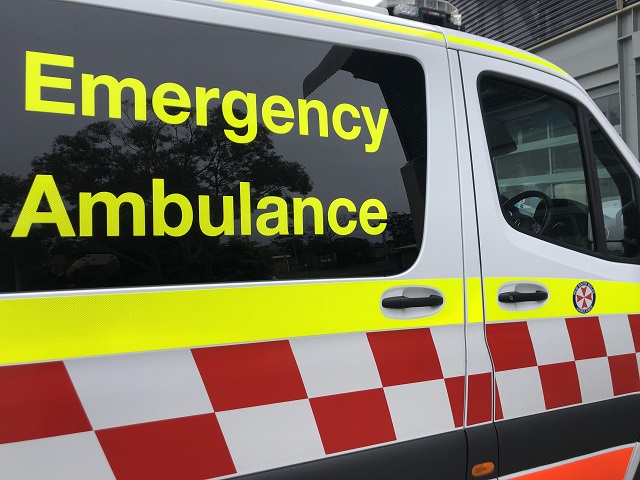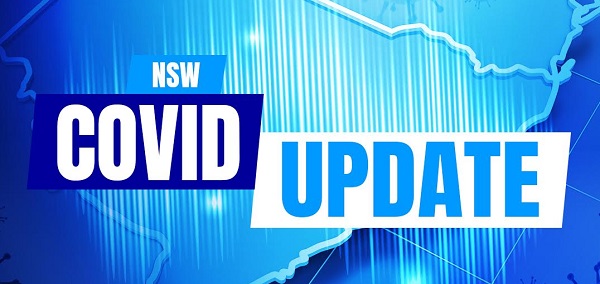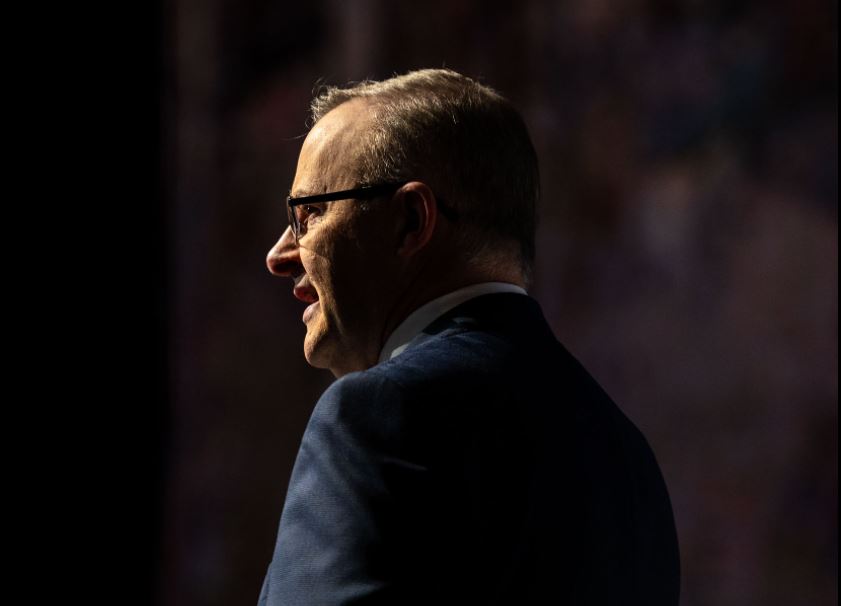Selected
- Details
- Written by Grant Broadcasters
- Category: Selected
- Hits: 96

NSW paramedics are ramping up industrial action in a bid to get better pay and resources allocated to the ambulance service in next month's state budget.
Australian Paramedics Association NSW assistant secretary Alan O'Riordan says conditions are dangerous and unsustainable.
"If the government fails to meaningfully invest in a safer, fairer workplace, they'll be staring down the barrel of a mass exodus of highly skilled and qualified workers," he said on Thursday.
A new survey of members revealed 87 per cent had missed more than half their scheduled breaks in the past month and 80 per cent had felt too tired to drive home safely after a shift.
The government needs to prioritise frontline health services in the June 21 budget, Mr O'Riordan said.
"We're fighting for a better service, for ourselves and our communities," he said.
"Our demands aren't going to go away."
Patient care was being compromised by a crisis in resourcing, he added.
Until May 18, paramedics across NSW will refuse to undertake "staff movements", where staff are re-assigned from their station once on shift.
The union will also refuse to undertake non-urgent patient transfers from hospitals after routine or post-treatment discharges on Mondays.
The escalation of industrial action comes after the government failed to act on the union's core demands of a wage increase and 1500 additional paramedics.
The heightened risk to staff coupled with an excessive workload and exhaustion had contributed to paramedics having "the worst morale in living memory", Mr O'Riordan said.
© AAP 2022
Image Credit: NSW Ambulance
- Details
- Written by Grant Broadcasters
- Category: Selected
- Hits: 101

Home isolation for close contacts, hotel quarantine and social-distancing requirements on public transport will be dropped in NSW, while COVID-19 vaccine mandates for some employees could also be relaxed.
The changes to home isolation announced by Premier Dominic Perrottet on Wednesday will come into effect from 6pm on Friday.
People who are household contacts of a positive case will no longer need to isolate at home for seven days, so long as they continue to test negative.
They should still work from home where possible and avoid high-risk settings such as hospitals and aged care homes.
"This will provide immediate relief for so many workforces and businesses who have been hit hard by labour shortages as people are forced to isolate because they are a household contact," the premier said.
From April 30 hotel quarantine for unvaccinated international returning travellers will also end.
The green dots indicating where to sit on public transport to maintain social distancing will also be ditched, however, masks will still be required on public transport, planes and inside airports and cruise terminals.
The Australian Health Protection Principal Committee had indicated it would be appropriate to drop some of the stricter restrictions once the current wave of infections had peaked.
Chief Health Officer Kerry Chant said the state was over the peak of Omicron "but the plateau is quite a flat line and the decline is quite slow".
NSW recorded 15,414 new cases on Wednesday and 15 more deaths.
Dr Chant warned that authorities still expected community transmission to remain high and she urged anyone with symptoms to stay home.
Society would have to co-exist with COVID-19 but that didn't mean ignoring the virus, she said.
People should also get a flu vaccine because the approaching influenza season was expected to be more severe than the previous two years, when COVID-19 restrictions limited transmission.
While vaccinations had played an important part in protecting people, Mr Perrottet said vaccine mandates would be dropped in some cases.
"We will move to risk-based assessments for employees based on the circumstances they find themselves in.
"I expect various circumstances where vaccines will be required," Mr Perrottet said.
The pandemic was not over but it was "a great day for our state" and the easing of restrictions was cause for reflection on the success of the state in dealing with COVID, the premier said.
"It has been a bloody tough two years for the people of NSW."
Arrangements for the second term of school are being finalised with further information on the return to school expected later this week.
Some 65.7 per cent of people eligible for a booster vaccine in NSW have received one.
Opposition health spokesman Ryan Park said the uptake was concerning but Labor supported the changes.
"But with that comes an onus on (the government) to make sure the community is aware that getting that third shot is absolutely critical," Mr Park said.
Industry groups welcomed the easing of restrictions, which they say will help address staffing shortages, particularly in retail and hospitality.
"Staff shortages due to COVID isolations have been an enormous frustration for small businesses in particular," Australian Retailers Association CEO Paul Zahra said.
Restaurant and Catering Australia CEO Wes Lambert said the changes to isolation requirements provided a flexible and workable solution to staff shortages.
Business NSW CEO Daniel Hunter said venues have had to close while healthy staff were stuck at home.
"It also made no sense that some industries were exempt from these rules - the unfairness was creating a two-tiered structure and that was damaging to business confidence and future planning," he said.
© AAP 2022
- Details
- Written by Grant Broadcasters
- Category: Selected
- Hits: 95
Anthony Albanese has emerged as the narrow winner from the first leaders' debate, as the opposition leader accused the government of having no vision for the future.
Both Mr Albanese and Prime Minister Scott Morrison faced questions from a panel of 100 undecided voters on Wednesday, ranging from the economy, nursing in aged care and the need for a federal integrity commission.
Of the voters in the room, 40 per cent backed the opposition leader while 35 per cent thought the prime minister had the better night, while 25 per cent still remained undecided.
Mr Albanese accused the government of just treading water while Mr Morrison touted his track record as prime minister.
Mr Morrison used the debate to spruik his economic record as leader, coming off the back of the COVID pandemic.
"The budget has turned around by over $100 billion, that is the single biggest turnaround in about 70 years," he said.
"The reason for that is we've got people into work, off welfare ... that is the major way you turn a budget around."
Mr Albanese went on the attack, saying the government was not focused on the future beyond the May 21 poll.
"The problem with this government is that it's just treading water, not pursuing any significant economic, social or environmental reforms," he said.
"(The government) are shooting for a second decade in office and they haven't shown any plan."
One question came from the mother of a four-year-old child with autism, who had NDIS funding cut by 40 per cent.
While Mr Morrison praised the work of the NDIS, while noting it was a difficult system, the prime minister drew criticism online after saying he and wife Jenny were "blessed" that their children did not have disabilities.
Mr Albanese said the situation regarding the funding cuts was not an isolated one.
"Labor does the big things and we also do the big reforms," he said.
"You can't be scared of the future, you have to shape the future otherwise, the future will shape you."
Both leaders traded blows over party stances on boat turnbacks, with Mr Morrison accusing Mr Albanese of being inconsistent on the issue during Labor's previous term in government.
"Other countries around the world have said Australia got it right," Mr Morrison said.
"You'll know I'll do it because I've done it."
When asked by Mr Albanese about why the prime minister was "looking for division", Mr Morrison responded he was "looking for the accuracy".
The opposition leader said Labor would do boat turnbacks should it win government.
When asked about how the nursing workforce would be supported in aged care, Mr Albanese said there was a critical need for more nurses to be trained up.
"Most people would be surprised that there aren't nurses in nursing homes, because it seems so fundamental," he said.
"Our aged care plan isn't something we've dreamed up, it is something that comes from the royal commission."
While the opposition has pledged to have a nurse on call 24/7, Mr Morrison said extra staff couldn't just "fall out of the sky", warning the plan would have repercussions in the sector.
"If you make that standard in aged care facilities right across Australia right now, then you will be closing aged care facilities in rural and regional communities across the country," he said.
Following news of the Solomon Islands signing a security pact with China, Mr Albanese criticised Mr Morrison on foreign policy failings, while also labelling Pacific Minister Zed Seselja a "junior burger".
"This isn't so much a Pacific step up, it's a Pacific stuff up," he said.
The prime minister said the issue in the Solomons was serious and one the government had been conscious of for a long time.
Integrity in politics also came up as a major issue, with Labor pledging an anti-corruption commission "with teeth", while the prime minister said he wanted to see a commission deal with criminal matters and not for it to be a kangaroo court.
© AAP 2022
Image Credit: Anthony Albanese
- Details
- Written by NSW News
- Category: Selected
- Hits: 144

A Wollongong man in his 80s and a person from the Lake Macquarie area are among 15 new COVID-related deaths across NSW during the 24 hours to 4pm yesterday.
The eight men and seven women also included a person from western NSW, along with four from Sydney’s inner west, two from south eastern Sydney, one from western Sydney and one from northern Sydney.
One person was in their 40s, one was in their 60s, five were in their 70s, five were in their 80s and three were in their 90s.
Two were not vaccinated.
This brings the total number of COVID-19 related deaths in NSW since the beginning of the pandemic to 2,641.
There are currently 1,639 COVID-19 cases admitted to the state's hospitals, including 72 people in intensive care, 24 of whom require ventilation.
There were 15,414 new cases in the 24 hours to 4pm yesterday.
The Hunter New England district again recorded the most cases, with 2069.
There were also 1595 cases in South Eastern Sydney, 831 in the Illawarra Shoalhaven Local Health District, and 396 in Southern NSW.
Page 53 of 191
